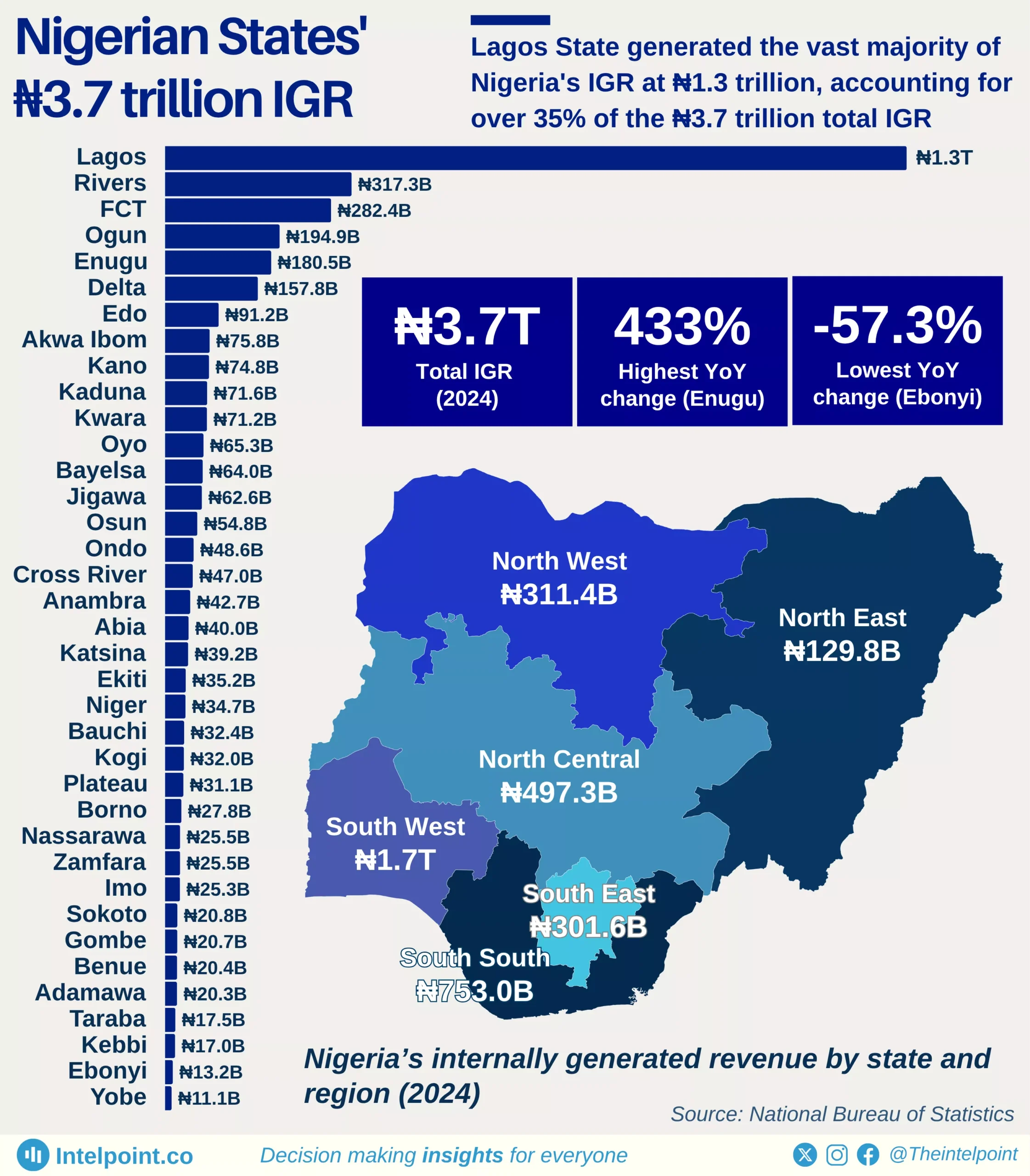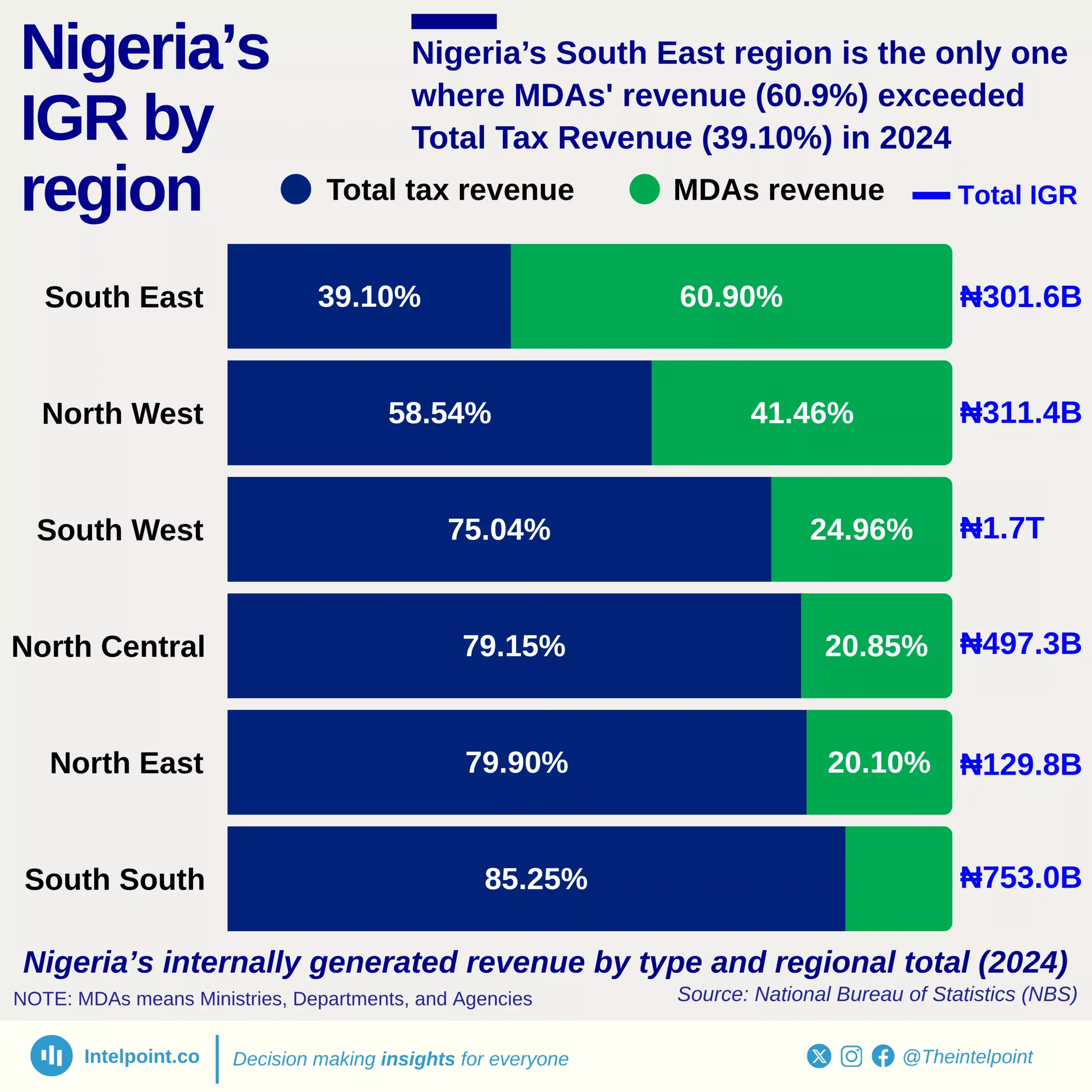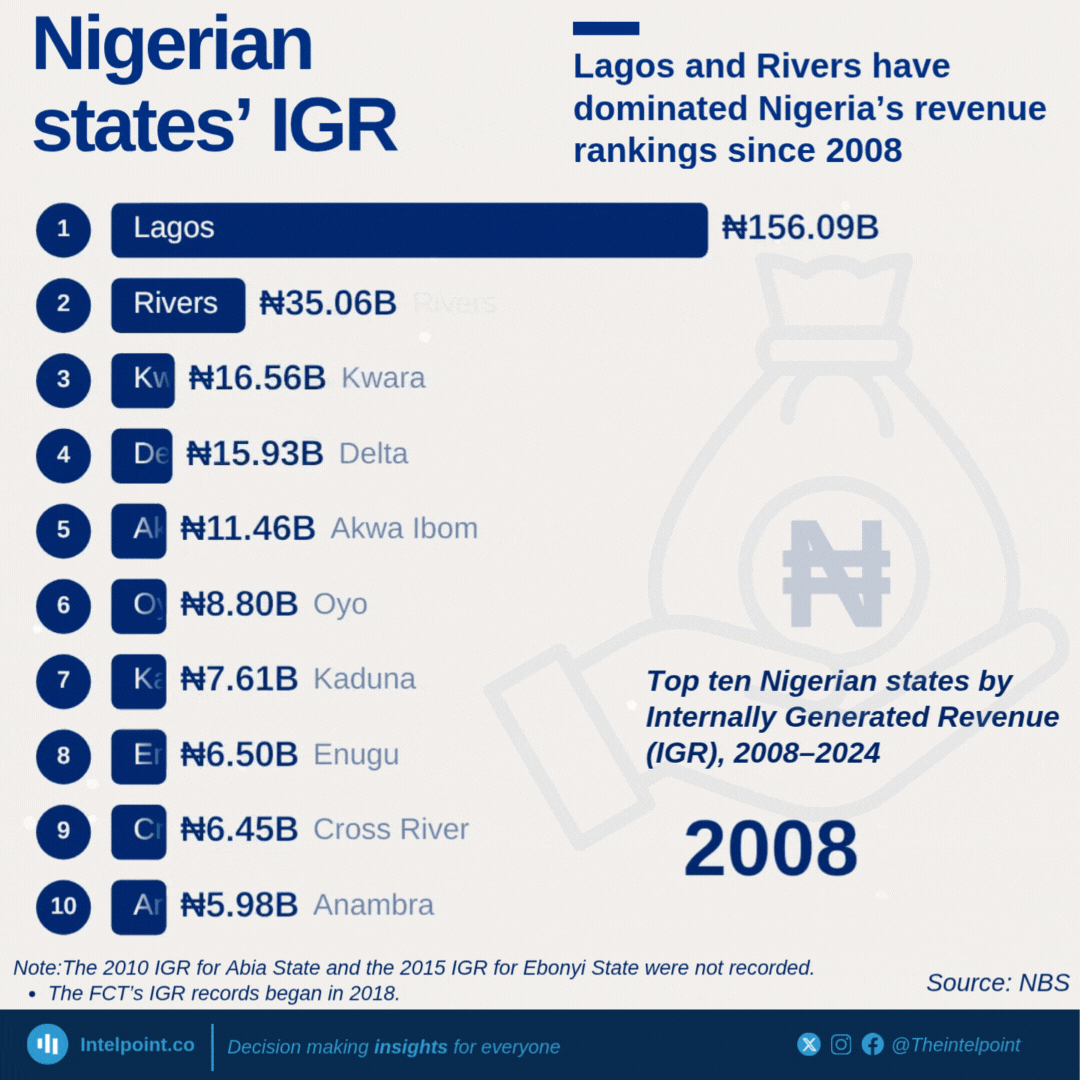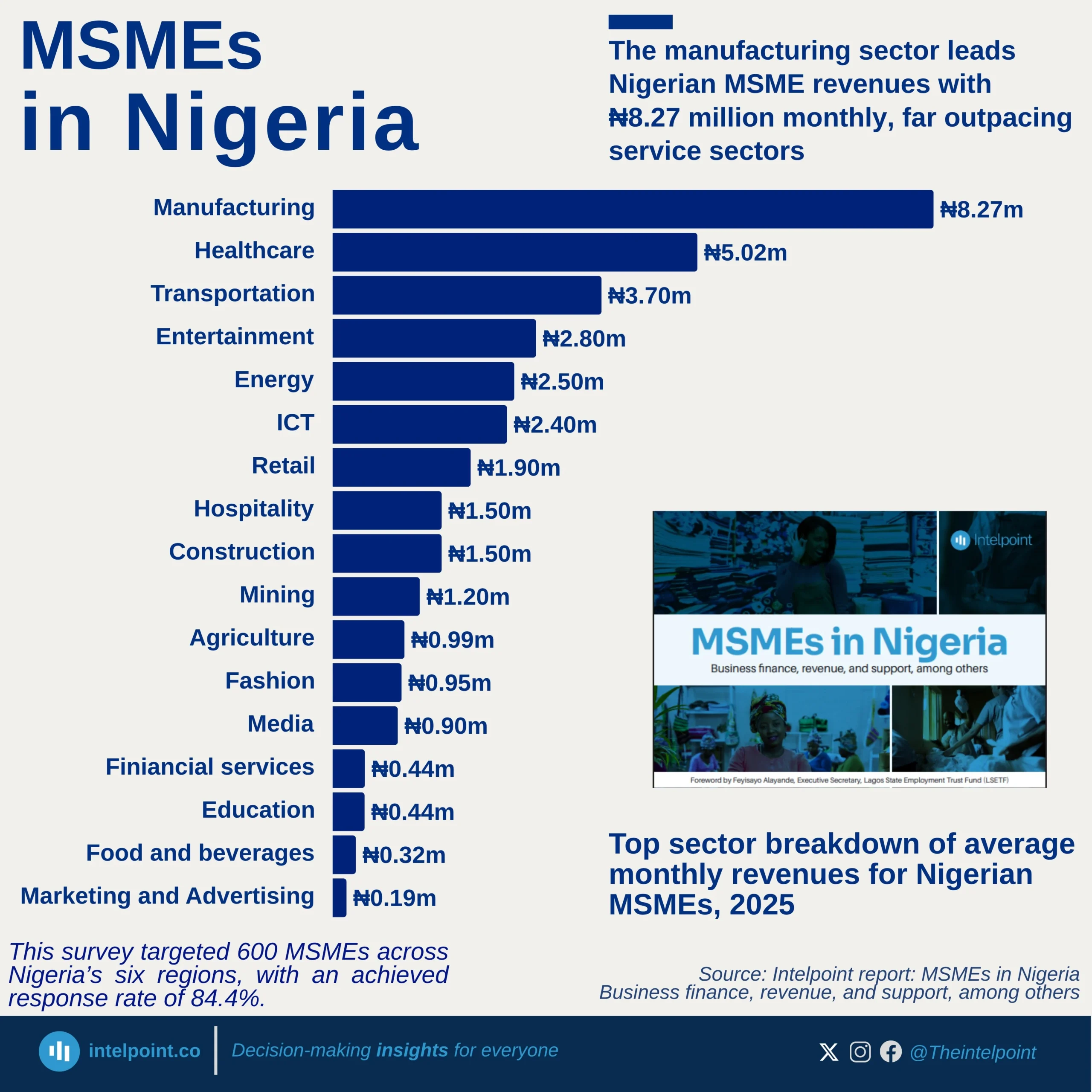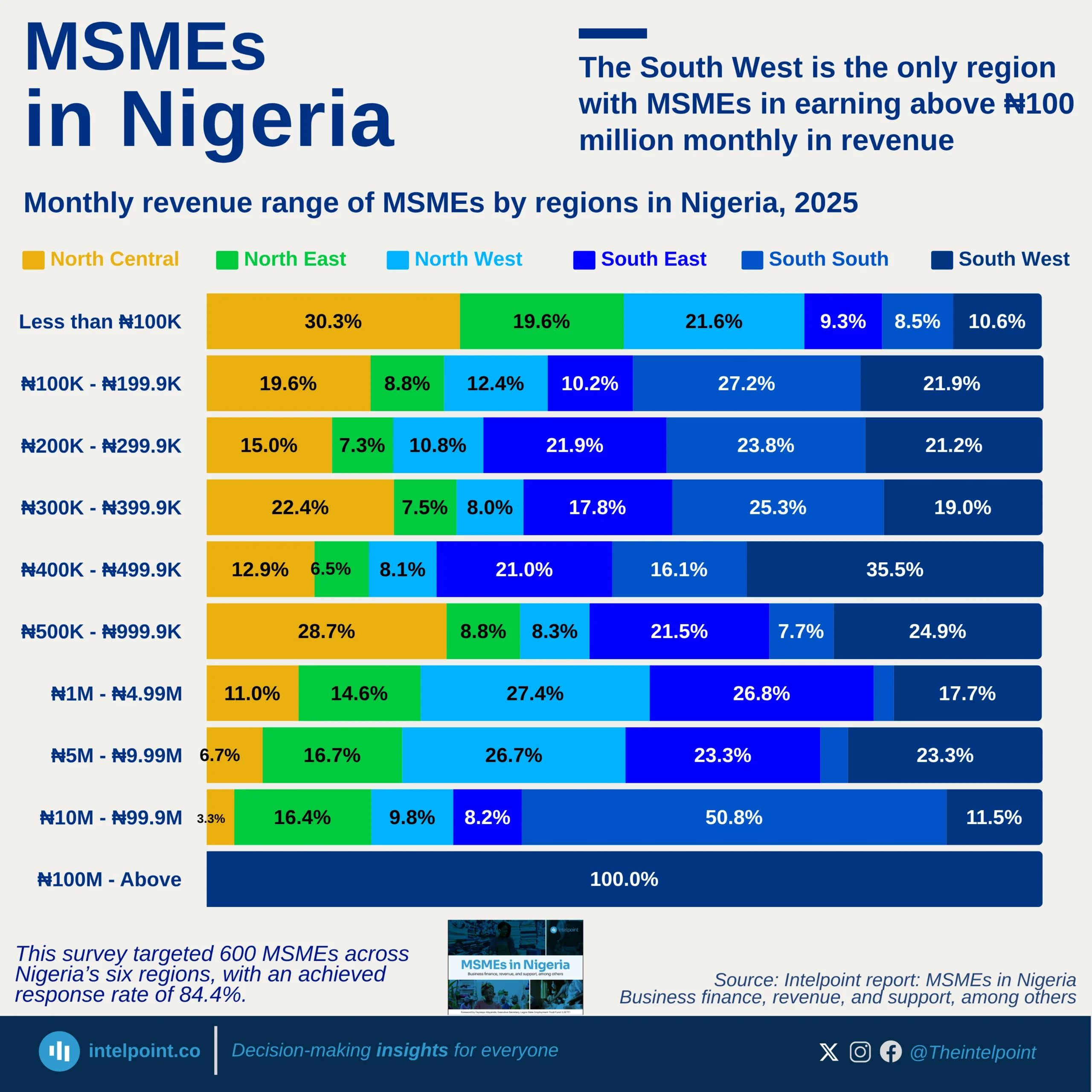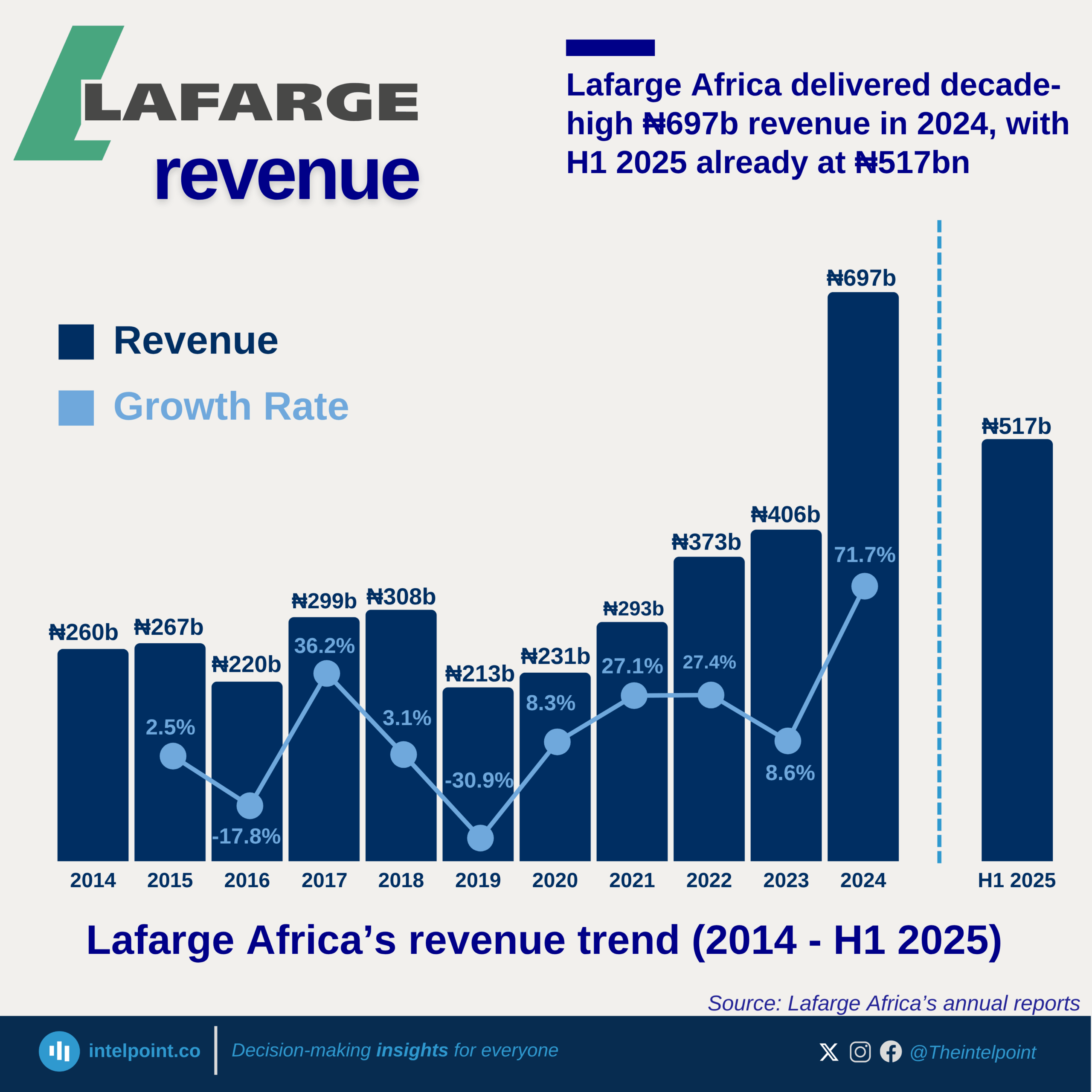Nigeria’s Federation Account Allocation Committee (FAAC) revenue distribution has shown consistent year-on-year growth from February to June 2025, reflecting improved government revenue mobilisation and stronger inflows. Except for January, which saw no change, every month in H1 2025 posted a significant increase in shared revenue compared to the same period in 2024, with growth rates ranging from 39% to 49%. This consistent rise indicates stronger fiscal capacity to support federal, state, and local government operations amid economic challenges.
